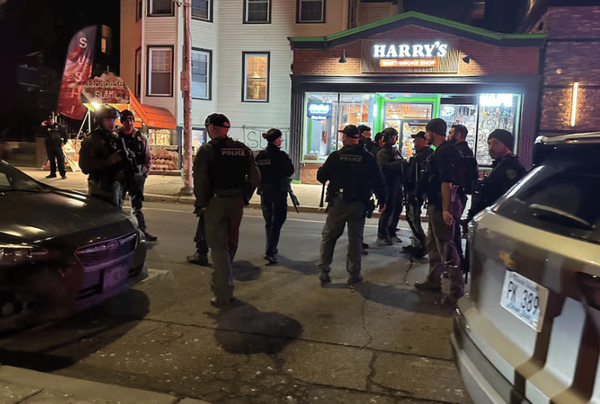
“I was leaving a department that had a waiting room full of people," he said. “I didn’t have any hope that it was going to be any better the next day, because I knew it wouldn’t be."
Such scenes are being replicated across the country. Ambulances are queuing outside hospitals, and patients report waiting as long as 40 hours to access emergency services. With the UK’s National Health Service already at breaking point after three years of a pandemic and a brutal flu season, understaffed hospitals and crammed emergency departments are becoming unable to provide patients with basic care — leading to an estimated 500 excess deaths each week.
The crisis is being driven by a resurgence of flu and other viruses, which are recirculating after laying dormant during the pandemic. Data for the week ending Dec. 26 showed that an average of 3,746 patients a day were hospitalized with flu, a nearly 80% increase from the week before. This compares to just 34 patients hospitalized for flu over the same period the year prior, according to NHS England.
Commenting on the latest flu numbers, NHS medical director Stephen Powis said that fears of a “twindemic" had come true. Of about 135,000 hospital beds in England, more than 9,500 are currently occupied by Covid patients.
Suddenly, a situation that was already bad for the NHS has gotten even worse.
The NHS has long been a source of national pride, and with a workforce of 1.4 million, Britain’s biggest employer.
After almost three years of dealing with the pandemic, however, staff are exhausted, and accident and emergency departments are no longer able to meet demand.
Adrian Boyle, president of the Royal College of Emergency Medicine, attributed the deaths to hospital delays, slow ambulance response times, overwhelmed emergency departments and the effects of rising staff turnover. “We think somewhere between 300 and 500 people are dying as a consequence of delays and problems with urgent and emergency care each week," he told Times Radio.
These numbers are very much still in flux. Walsh, the London doctor, said that the number of preventable deaths did not take into account patients who could not be reached by ambulance. Chris Hopson, chief strategy officer at NHS England, warned on the other hand that the estimate might be too high, telling the BBC World at One program that “we need to be very careful about jumping to conclusions about excess mortality."
More patients are arriving at hospitals than are being discharged, and some patients who no longer need medical attention are staying simply because they have no place else to go. According to the latest data, more than 12,000 hospital beds are currently occupied by patients awaiting social care, in which assistance is provided either at home or in a facility. Richard Webber, a spokesman for the College of Paramedics, said this week that the pressure on the NHS was the worst he had ever seen. Hospitals, he told BBC Radio 4, are “full of patients who should be elsewhere."
The spread of viruses has also hit NHS staff hard, with daily Covid absences reaching a high of 8,029 in the week ending Dec. 30, up from 5,448 a week earlier. This is compounding an already acute staffing crisis. There are more than 133,000 NHS vacancies across the country, including a shortage of 47,000 nurses. In the 12 months leading up to the end of June 2022, more than 40,000 NHS employees in England left the service.
Prime Minister Rishi Sunak increased funding for the NHS and social care in November, and is standing by his party’s pledge to build 40 new hospitals this decade. However, he lacks a plan to tackle the crisis in the short term.
During a period of high inflation, rising interest rates and hefty tax burdens, all of which make it more expensive to borrow money, Sunak is facing pressure to provide emergency funding for the NHS. Nurses, many of whom are struggling under the cost of living crisis, plan to go on strike again later this month over pay and employment conditions. While Sunak has acknowledged that the government needs “to do more" to tackle the current crisis, so far he has refused to budge from his position of granting NHS workers an average of a 4% pay rise. Nurses are asking for about 19%.
A less costly alternative, which has been backed by business groups, would be to relax current immigration rules and allow more foreign skilled workers to work in the social care sector. However, both Sunak and the opposition Labour Party have been reluctant to support such a policy.
For Dr. Walsh, the extra help cannot come soon enough.
This story has been published from a wire agency feed without modifications to the text.







